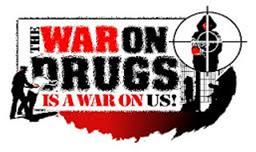
The war on drugs might as well have been a war on the black community the tactics of some local and national politicians helped create this façade of a war. During this so-called war on drugs, many within the black community have been the casualties. Combined with the problems of the war on drug movement are the sentencing practices that were born out of this war. The mandatory minimum sentences that put young men and women away for a large part if not the rest of their lives are overwhelmingly disproportionate to their counterparts.
Some of the obvious racial disparities in incarceration of black youth are that African Americans now constitute nearly 1 million of the total 2.3 million incarcerated populations. You now have African American being incarcerated at nearly six times the rate of whites. From 1908 to 2008, the number of people incarcerated in America quadrupled from roughly 500,000 to 2.3 million. This makes this so called war more of a concentrated target toward the black community, when you have one in six black men having been incarcerated as of 2001. If this trend continues one in three black males born today can expect to spend time in prison during his lifetime.
The drug sentencing brings on these disparities when you have about 14 million whites and 2.6 million African Americans reported using illicit drugs. Five times as many whites are using drugs as African Americans yet African Americans are sent to prison for drug offenses at ten times the rate of whites. According to the criminal justice fact sheet African Americans represent 12% of the total population of drug users, but 38% of those arrested for drug offenses, and 59% of those in state prison for drug offenses. Blacks are serving considerably more time in prison for drug offenses as whites do for violent offenses.
Some contributing factors would be the inner city crime prompted by social economic isolation. You have to expect if the living conditions for most African Americans are in disarray and that there are virtually no programs or jobs and trade schools in these areas that more often than not the substitute is drugs and crime. The mandatory minimum sentencing especially disparities in sentencing for crack and powder cocaine. Another factor was the get tough on crime and the war on drug policies that were used as campaign slogans. The implementations of the three strike habitual offender policies were also contributing factors.
In addition, with the inner city’s population become the cash crop for prison the effects it has on the community are devastating. Incarceration reduces the work time of young people over the next decade by 25-30% when compared to youth who have not been incarcerated. It also drains the community of generational wealth that could be achieved by those youth.
About 70 billion dollars spent on corrections annually this money could be put into building trade schools to teach the youth on the inner city. With a skilled trade, you could cut down on the amount of youth who turn to drugs. This would help to build up the black community instead of tear it down and ravage it with this war on drugs that hasn’t accomplish a thing but make prions become the new slave trade.
Readers Also Liked:


